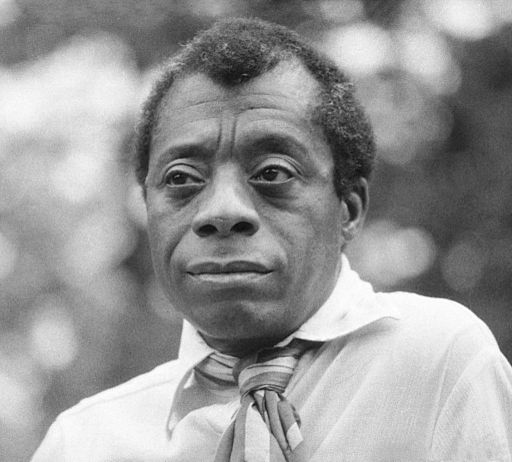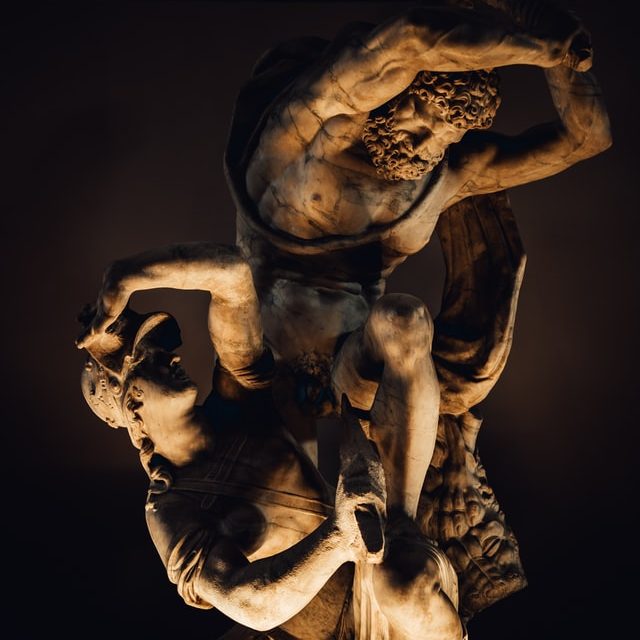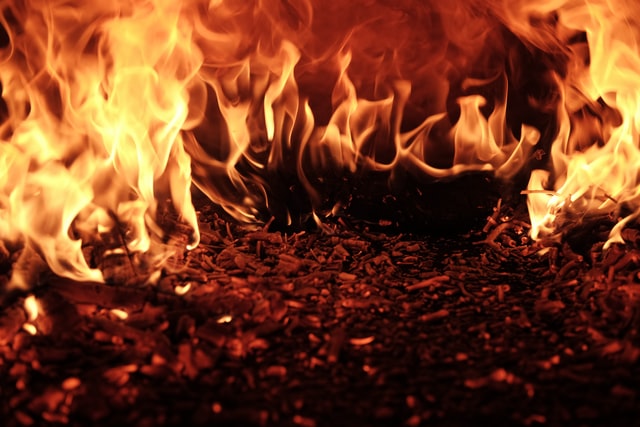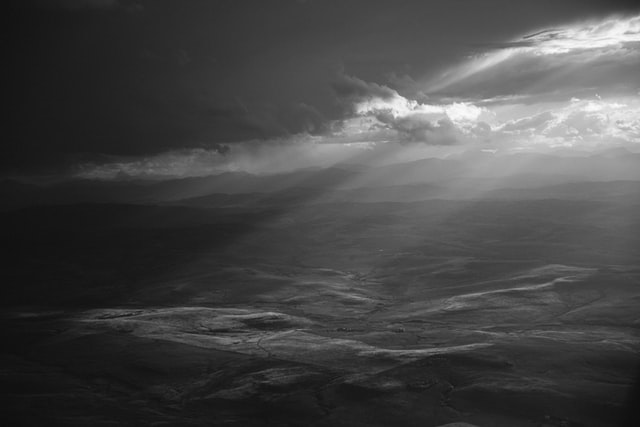The only way I know to write is to pay very close attention, to write experiences which evoke and do not state. This is, of course, to show and not tell. The dreams of my device are remembered but not yet awakened. Images only suggests shapes with light and shadow like a topographical map. That’s what language can do. I want the sympathies of the reader to draw the meaning out and to pull it forward along with the material of their lives. The novel aspires to be, therefore, a Socratic novel. Is this possible? The Socratic philosophy is known for not definitively answering hard questions. Do we know that we know nothing?
All I need from them is trust– that this path goes somewhere new, but not too new; on the map, but not on the old map. This trust I must earn through deep intention and long trial and error. And when we are free, without debilitating judgement, the illuminated path ends and human flight is possible.
Readers learn that the voice adds vital character to a point of view. This is accomplished through countless decisions of craft at the minute level of the word. But I also hear the consternation of readers in writing workshops who have not found the thread of the story while sorting through the words. Indicating the failure of the writer, they might say that they don’t know what the character is thinking and feeling. They want to drive their car through the fiction, glance out the window, listen to their favorite station, and race their GPS maps to a destination that they already expect. But like a nation, this novel is not broken; it is incomplete.
“You think your pain and your heartbreak are unprecedented in the history of the world, but then you read.”
James Baldwin

The Family Curse
Scenes in the canyon presented in Otis’s close third are among the thematic promises I try to keep. There are threads: the contested history and politics of the land and labor, a story of manhood, emerging identity, and coming militancy. Theft of land and labor are always in counterpoint to the story of development and increasing rights. I try to keep my characters from getting stuck in the mud of either side of thematic tension.
In the first section of this chapter, more about the disappearance of the mother is revealed. A traitor could have called in the federal agents because of her Cherokee roots, or because she is not a Christian, or because she was not married to the father of her child. Knowledge of US history is activated in this tragedy, but in the fiction, a woman was stolen away and her family torn apart. Then as now, it is hard for those most affected to see the lines of causality.
Awi looked down and revealed nothing further.
Otis felt the life go out of him. This, he had never considered, and it caught him like a trap. Those smiling churchgoers in town turned hateful. They could’ve betrayed her, or Jebediah for some fiendish purpose of his own. For miles of hard riding he could think of nothing else and it didn't matter where they were.
For Otis, the vulnerability that comes before an awakening has been difficult to represent. I chose a family curse. Presented as backstory, Otis remembers when his membership in a family was marred by a curse tinged with religious stricture. It comes from the enslaver who is also his father. Forms of hatred go down through generations, paved with good intentions. Before any sexual behavior takes place, it is represented as a sin punishable by death.
Jebediah raised the lantern to show him the great hanging arms of dripping white above a pool of water. He said, “A boy with skin dark as yours will die if he touches the sacred water of a white woman....Jebediah looked away and said, “My Enola is no white woman. If you touch her, I will see that you both die.”
To the boy, Otis, death was suddenly there in the tormented flame on the water. It was a curse that had never quieted. If you touch her, I will see that you both die.

Absurd and Total Darkness
Our place in the world has been organized by stories, fabrications that cohere to us. Fiction stages a story that is preliminary and could give us more distance from which to analyze and freedom with which to create. The working draft of the next scene may read like it arises from contemporary consciousness. Looking at the ancient designs pecked into the stone face, Otis sees what he cannot understand, an image of what he thinks is Lucifer, a long-legged horned figure flying across the red sky. Awi, a Socratic teacher, does not give better answers. He says, “You see what you need to see.”
When the candle flame extinguishes itself and they are lost in total darkness, fear turns into nervous laughter, which is layered over superstition, or is it comforting faith, before it morphs into skepticism, which can return to unprocessed grief or free itself. Which will it be?
“You see what you need to see,” said Awi. “Here, you take it.” He gave his candle to Otis. After a few steps, the candle grew tall, flickered madly, and snuffed itself out. Neither man made a sound, but Otis squatted and touched the earth with his left hand.
Awi reached for him and laughed, which he rarely did, and it made Otis smile in the absurd and total darkness.
Drenched in sweat despite the cold, Otis took out one of his precious matches and struck a light. Inhaling its sulfur flare, he felt strangely euphoric. “The light of Lucifer,” he chuckled but there was no joy in it. The sunlight was beyond a narrow passage, and when it came, it was blinding.
“You have to live not knowing. Just like the rest of us. Sun’s climbing. Let’s go.”
Mineral Springs
After the event inside the cave, the two men ride through more limestone labyrinth where Otis tries to make meaning of his experience in the cave. He tries to pray, “Our Father,” but the words do not come. He questions his reality.
He was startled when Awi told him to dismount and drink from the spring. Otis shook himself awake. He straddled the stone and pressed his lips to the gurgling from a small fissure in the rockface. It was heavy with minerals. Life slipped back into him as if it had never left.

The period in history was characterized by interests in the supernatural and the visionary powers of prophets. Radical abolitionists believed they were chosen to fight the nation’s greatest sin. I have not thrown myself into representing them in these terms because of the potential alienation of my readers and distress to my own sensibilities. I have slipped religious references in here and there, but have not favored the individuation or the collective energy that may come with religious fervor.
Was it the prayer which gave healing to my character’s sincere pain, or was it practical knowledge of the landscape? Awi knew the location of the mineral spring. My readers almost never notice evidence of spirituality in my writing, but I see the signs of benevolent intelligence. Words and their intention, which may feel unreal or broken at the time of utterance, yet when coupled with the immanent feminine, become whole and act in the world.
We steadily vow that no matter
How we are weighted down
We must always pave a way forward.
Amanda Gorman, “New Day’s Lyric,” 2022
Lost Generation
There is a story counter to one of healing at the mineral spring. It will require generations to resolve. Otis enters the village and is welcomed, but the people in hiding face food insecurity and annihilation of their way of life. Otis smokes when the pipe is offered, listens to the old ones, and receives a vision.
He understood. The water could be fouled and the soil depleted. If too many ate their stores, they would weaken and starve come winter. Prairie falcons above cried an alarm for an intruder. Otis and a few others looked up past the treetops. His inner eyes lifted and saw across distant sunlit miles. To the eastern horizon, the flattened grass was strewn with motionless humps, hundreds, a thousand, or more. Spuming birds flapped and cawed. The uncountable humps in the distance were bison, their carcasses feeding scavengers
The old ones tell Otis to redirect his efforts from patient work to build an ideal society to assert masculine power, to “take back his manhood.” The writing at the end of this scene could be my best, I think because Otis makes a pledge to honor something deep in the call of history. That pledge, to defend something unnamed, could take all his life to fulfill.
It was a pledge. In Stoneville, they had touched the land when it was young. Like an antidote against cruelty, love had weakened the old curse. In her memory, the well of love lifted inside him, displaced by a single stone into a crown of flame.
“I imagine one of the reasons people cling to their hates so stubbornly is because they sense, once hate is gone, they will be forced to deal with pain.”
James Baldwin, The Fire Next Time (1963)

“It’s our war and you gotta choose sides.”
The Brotherhood
This disturbing visionary scene is quickly followed by a scene which requires extensive research. On the edge of the village, Otis meets Boswell the Nigerian and Brother Ebenezer. They recruit him to join their militant brotherhood, the Knights of Liberty.
“You there, yellow one.” A sonorous voice came from behind. A large man came up beside him casting a shadow. Black skin flashed under a billowing white shirt. He said, “As long as you beggin’ to be let free, you ain't free.”
For this scene, I have adapted several expressions from Malcolm X and cite them in footnotes. “Any time you beg another man to set you free, you will never be free. Freedom is something that you have to do for yourselves” (Malcolm X). Boswell and Ebinezer have several means to recruit Otis, which include weakening his bonds to the white abolitionists.
“You need ta become who you are, brother,” rumbled the first man. “You need ta ‘come Black, where you belong.
This line may sound anachronistic, but according to the scholarship of John Stauffer, the term Black was used to signify racial pride a hundred years before the Black power movement. However, the concept of becoming Black may be more contemporary. My work on this character development is indebted to the research of a generation of Black social psychologists. Their research on Black militancy of the 1960s and the Psychology of Nigrescence is presented in Shades of Black: Diversity in African-American Identity by William Cross. This developmental pattern fits the writings of Frederick Douglass and the evidence of other radical abolitionists in the pre-war period. They became more militant to act against the growing political power to maintain the slave laws.
War’s not just comin’; it's already here. It’s our war, and you gotta choose sides.”
Otis widened his stance, felt for his knife with one hand, and wiped spittle from his chin hair with the other.
The men looked at each other and chuckled. One looked down on him and said, “He’s been living in some big white house, looking for bravery in white man’s books.”
Otis wiped sweat out of his eyes. The two men closed in, but there was no attack....
Boswell speaks about Otis’s background with unsettling insight. His follower, Ebinezer points to the false hopes of white abolitionists and their unrealistic expectations about American government. These are the slaps of reality that would change Otis’s course of action.
“Before you make anything new, you gotta burn what holdin’ you back,” the tall man said.
Otis looked into his face. His vision cleared. Strength shot down his arms and legs, but not to fight, to move forward.
The man noticed the change and smiled. “God’s fire be in you needin’ good air ta burn right, not white-devil breath. War not just comin’; it already here. It our war, and you gotta choose your side.” He spoke kindly in his deep voice. “Place yourself where you belong.”
The Compromise, “Boswell and the Brotherhood”
Like the historical McCune Smith, the first Black physician in the US and one of the radical abolitionists in Stauffer’s history, Otis becomes deeply skeptical of white abolitionists and their societies. In my novel, this mistrust wrenches Otis away from the women in his life, who are more inclined to practice economic boycotts and social solidarity with one another. This includes Hester and the academy directors. In the current draft, Scarlett and Mariah, with heart divided, follow Otis into the violent struggle. Their lives are put at risk as much as his.
The Black Brotherhood unites Otis with a powerful and coordinated group seeking social change in the way of John Brown. Though violent rebellion was deemed necessary in the fight against slavery, the organized groups also gave solidarity. In American history, Black anti-slavery organizations offered mutual aid and other social goods. Specifically, the International Order of Twelve began in Missouri in the period of the novel.
My story of Boswell and the Brotherhood should keep my readers wondering if this alliance is for good or ill. Is and was violent action required to make change? I intend to leave the questions to be answered in its moment by the human heart. Vulnerable and honest humans seek a way out of existential pain through destruction, sudden or slow burning. I don’t know yet how long this radicalization lasts for Otis or how convincingly I have told the tale. The questions of today may be different, but the duty to meet those questions with qualities of intelligence and courage are never more valued than at the present.
“Our past was slavery. We cannot recur to it with any sense of complacency or composure. The history of it is a record of stripes, a revolution of agony. It is written in characters of blood. Its breath is a sigh, its voice a groan, and we turn from it with a shudder. The duty of to-day is to meet the questions that confront us with intelligence and courage.”
Frederick Douglass
